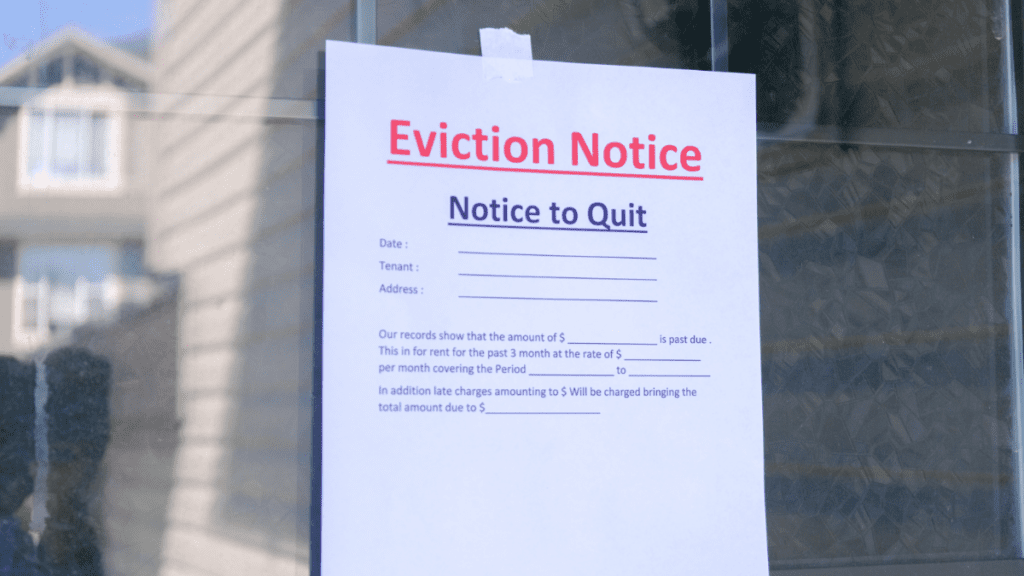
The rental real estate business can be a rewarding and fulfilling endeavor, but might eventually require a landlord to go through the unpleasant process of eviction. Rental property evictions occur under certain circumstances (such as non-payment of rent), are dictated by specific legal grounds, and require a well-defined process to execute effectively and lawfully. Navigating this challenging legal aspect of rental property ownership with informed strategies can protect your investment and foster a more stable rental landscape.
Search Rental Real Estate
Try searching out site for hundreds of rental property topics ranging from property management, investor tool reviews, investment research, and more.
Legal Grounds for Eviction
As a landlord, knowing when you can legally terminate a lease and remove a tenant from your property is crucial for maintaining order and profitability. However, evictions hinge on a specific set of grounds that are typically governed by local and state law. Commonly accepted grounds often include issues such as non-payment of rent, violation of lease agreements, severe property damage, or unlawful activity on the premises. Gaining a solid grasp of these parameters enables landlords to make informed decisions, promoting a harmonious landlord-tenant relationship while safeguarding the integrity of their investment.
The Eviction Process (Steps)
As a rental property owner, understanding the choreography of the eviction process can mean the difference between a smooth resolution and a potential legal quagmire. While it might seem tempting to expedite proceedings in challenging situations, it’s imperative to adhere strictly to legal guidelines, ensuring that each step is handled judiciously. Following the due process not only ensures compliance with the law, but also demonstrates your commitment to professional and fair property management.
- Issue a Notice to Quit: This is the first official step in the eviction process, wherein the tenant is informed in writing, about the violation and the landlord’s intent to terminate the lease if the issue is not resolved within a certain timeframe.
- File an Unlawful Detainer Lawsuit: If the tenant fails to address the problem or vacate the premises within the notice period, you can then file an unlawful detainer lawsuit in your local civil court. This legal action is necessary to officially remove the tenant.
- Attend Court Hearing: A court hearing date will be set, at which you must present your case. Evidence such as the signed lease, records of non-payment, or proof of violation of the lease terms should be ready for presentation.
- Obtain an Eviction Order: If the court rules in your favor, you’ll receive an eviction order, which is the legal document that allows you to regain possession of your property.
- Enlist Law Enforcement: In most jurisdictions, only a sheriff or other law enforcement officer can enforce the eviction order. They will provide the tenant with a final date by which they must leave, or they will physically remove the tenant if necessary.
- Handle Leftover Possessions: If the tenant leaves personal property behind, most local laws generally require that you store the items for a certain period, allowing the tenant to reclaim them.
Eviction Notices & Documents
A landlord’s toolkit wouldn’t be complete without a comprehensive understanding of the variety of documents and forms used in the eviction process. Often, eviction is a sequence of written communications that start with preliminary notices and culminate in court orders.
Initial notices can vary based on the cause of eviction, such as a Pay or Quit Notice for non-payment of rent, or a Cure or Quit Notice for lease violations. If these fail to resolve the issue, the process advances to legal filings like an Unlawful Detainer Suit. Appreciating the role and appropriate use of these legal landlord documents is pivotal to successful, and lawful, property management.

The #1 Rental Property Newsletter
Once a month, we send out an exclusive Rental Property Market Update with top stories, current mortgage rates, building products, and more. No spam and unsubscribe anytime.

Rental Property Evictions FAQ
Should I Hire a Lawyer to Handle my Rental Property Eviction?
The decision to hire a lawyer to handle an eviction can depend on several factors. If the eviction process in your jurisdiction is complicated, or if the tenant is fighting the eviction, has a lawyer, or is claiming that you are acting unlawfully, it might be wise to have a lawyer on your side. They can ensure that you’re following the process correctly and are prepared for any potential legal challenges. A lawyer can also save you time and stress by handling court proceedings and paperwork.

Are Financial Hardships Excusable to Stop an Eviction?
The extent to which a tenant’s financial hardship can prevent an eviction largely depends on local and state laws, and in some cases, federal law or policy. Some jurisdictions have specific protections for tenants experiencing financial hardships, especially in response to unforeseen circumstances or emergencies like the COVID-19 pandemic. For instance, temporary moratoriums on evictions have been enacted during such times. However, generally speaking, financial hardship is not a long-term legal defense against eviction for non-payment of rent. A legal professional or local housing authority can confirm if there are any specific regulations and/or protections in place in your local jurisdiction regarding financial hardships.
Are Rental Property Evictions Tax Deductible for Landlords?
The costs associated with the eviction process can be a bit of a gray area when it comes to tax deductions for a rental property. Typically, the direct costs of eviction, such as filing fees or hiring a lawyer, are considered operating expenses and can be deducted from your taxable income. However, lost rental income due to a vacant property during the eviction process is generally not tax-deductible. It’s also important to note that any damages awarded to you through a court judgment, like unpaid rent or property damage, are considered income and may be taxable.
About the Author

Ryan Nelson
I’m an investor, real estate developer, and property manager with hands-on experience in all types of real estate from single family homes up to hundreds of thousands of square feet of commercial real estate. RentalRealEstate is my mission to create the ultimate real estate investor platform for expert resources, reviews and tools. Learn more about my story.
More Rental Property Law Guides
Disclaimer: The information provided on this website does not, and is not intended to, constitute legal advice. As such, all information, content, and materials available on this site are for general informational purposes only. Please review our Editorial Standards for more info.


